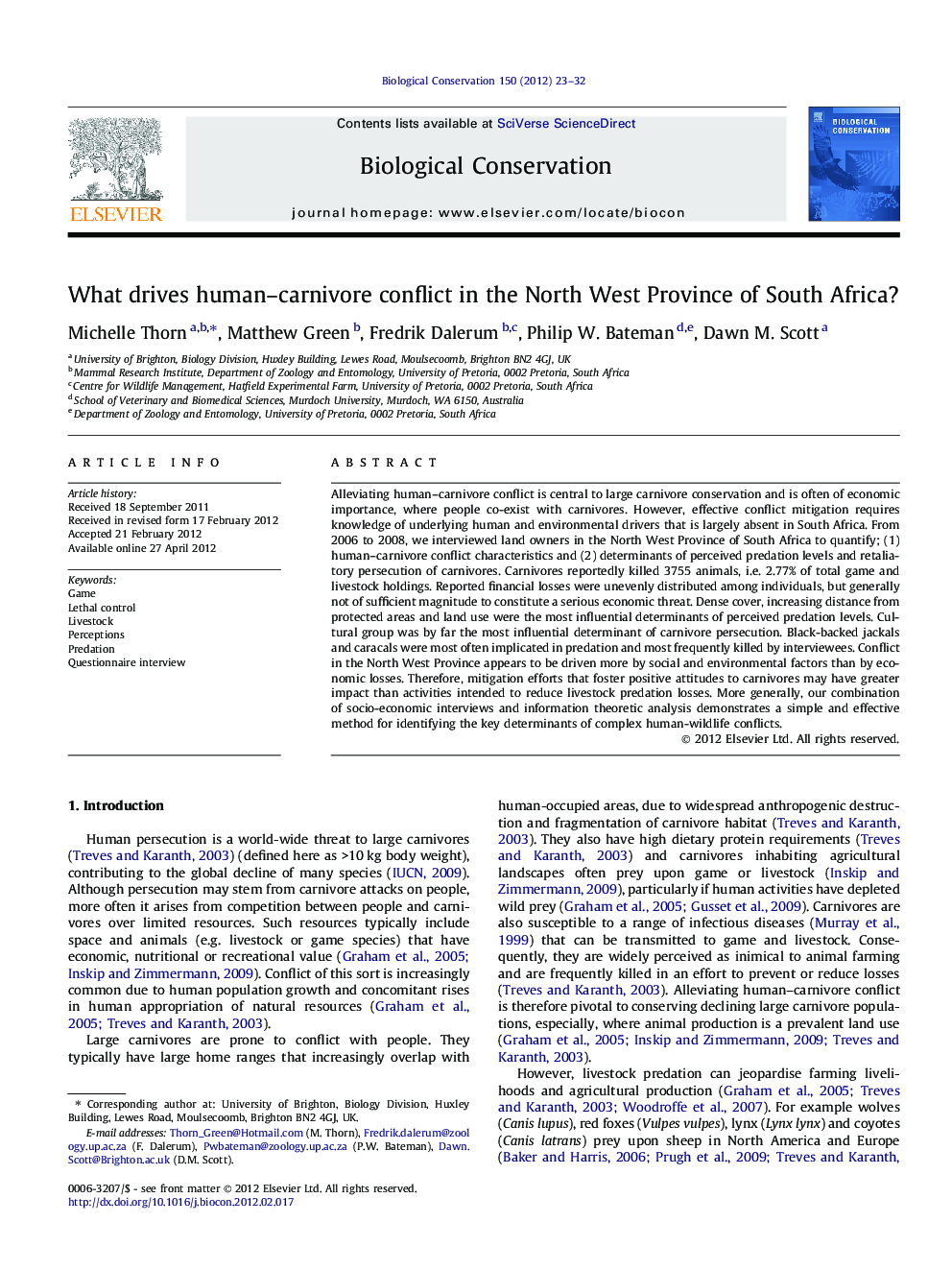| Article ID | Journal | Published Year | Pages | File Type |
|---|---|---|---|---|
| 4385073 | Biological Conservation | 2012 | 10 Pages |
Alleviating human–carnivore conflict is central to large carnivore conservation and is often of economic importance, where people co-exist with carnivores. However, effective conflict mitigation requires knowledge of underlying human and environmental drivers that is largely absent in South Africa. From 2006 to 2008, we interviewed land owners in the North West Province of South Africa to quantify; (1) human–carnivore conflict characteristics and (2) determinants of perceived predation levels and retaliatory persecution of carnivores. Carnivores reportedly killed 3755 animals, i.e. 2.77% of total game and livestock holdings. Reported financial losses were unevenly distributed among individuals, but generally not of sufficient magnitude to constitute a serious economic threat. Dense cover, increasing distance from protected areas and land use were the most influential determinants of perceived predation levels. Cultural group was by far the most influential determinant of carnivore persecution. Black-backed jackals and caracals were most often implicated in predation and most frequently killed by interviewees. Conflict in the North West Province appears to be driven more by social and environmental factors than by economic losses. Therefore, mitigation efforts that foster positive attitudes to carnivores may have greater impact than activities intended to reduce livestock predation losses. More generally, our combination of socio-economic interviews and information theoretic analysis demonstrates a simple and effective method for identifying the key determinants of complex human-wildlife conflicts.
► Three thousand seven hundred and fifty-five animals (2.77% of total stock holdings) predated by carnivores. ► Predation losses generally did not constitute a serious economic threat. ► Most influential determinants of predation: vegetative cover, distance from protected areas, and land use. ► Most influential determinant of carnivore persecution: cultural group. ► Conflict is driven more by social and environmental factors than economic losses.
